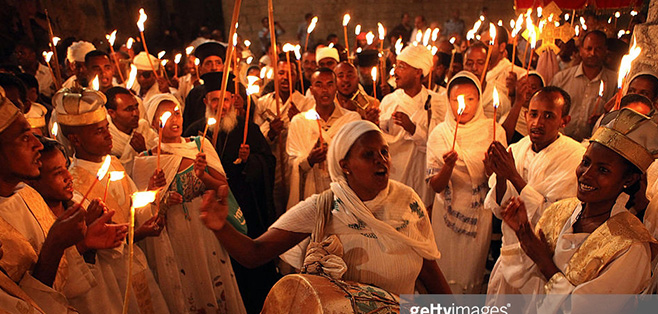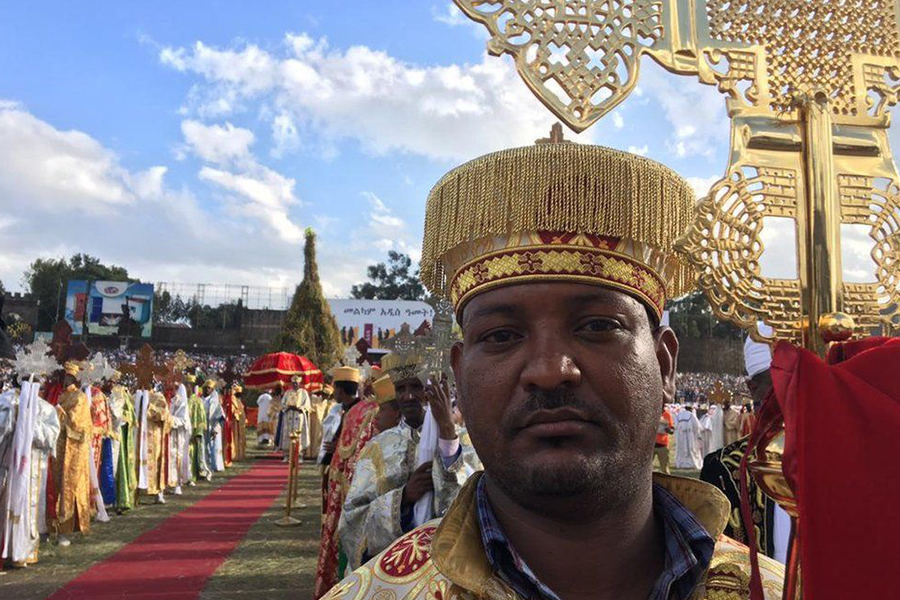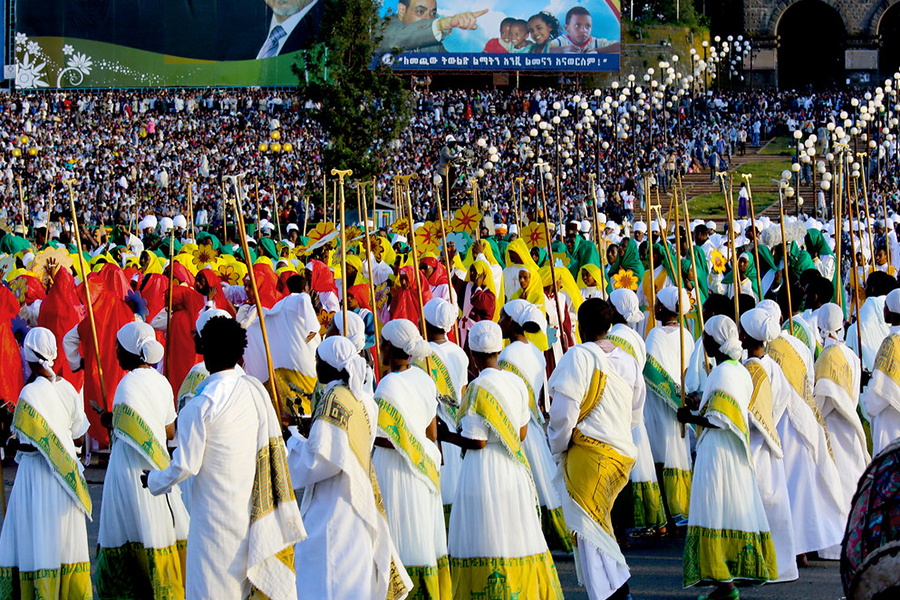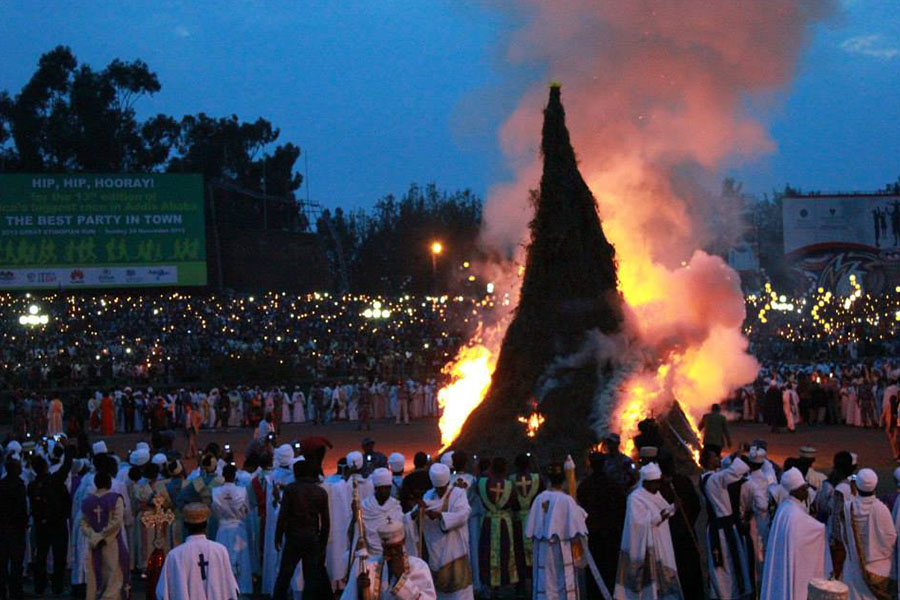THE COUNTDOWN BEGINS
MESKEL (Finding the True Cross)
The month of September is an important month of celebrations in Ethiopia. The Ethiopian celebrations that falls within this month on the Gregorian calendar are the Ethiopian New Year celebrations known as Enkutatash which falls on September 11 – or on the 12th in a leap year and Meskel. Meskel has been celebrated in Ethiopia and it is probably the most important festival after the Timkat.
Meskel celebrations commemorate the discovery of the cross on which Jesus Christ was crucified by St. Helena, mother of Constantine the Great. According to legend, in the year 326 AD Queen Helena went on a search for the true cross and was unsuccessful until she received help through a dream. In accordance with the dream, she made a bonfire and the smoke gave her direction to the spot where the cross was buried. To herald her success, Helena (known as Nigist Eleni in Ethiopia) lit torches. In the Middle Ages, half of the cross was given to Emperor Dawit of Ethiopia by the Patriarch of Alexandria in appreciation of the protection offered to Coptic Christians. Marked with feasting, dancing and all kinds of merrymaking with bonfires and gun salutes, the occasion usually starts on the eve of Meskel with the planting of a green tree in town squares and markets. Long tree branches are tied together and yellow daises called meskel are placed on top.
The branches are gathered together in a bundle called demera and set ablaze by a procession of people – priests, students, etc. The people toss flaming torches which they are carrying at the demera, singing a special Meskel song as they circle it. Around individual homes, little demeras are built as well.
The demera burns until it turns entirely into ashes. As it burns and collapses, the direction which the demera falls is interpreted as a sign or portent. Rain is usually expected to fall to put out the fire and when it does, the year is expected to be a prosperous one. In most villages, the celebration continue through the night. The next day which is the actual meskel, people go to the spot of the demera and use the ashes to mark their foreheads with the sign of the cross. There is a lot to eat and drink as people celebrate together. One of the significant occurrences of the festival is the coinciding with the mass blooming of meskel flowers, the golden yellow daisies.
SELECTED PACKAGE
30 November -0001
5 Days Danakil Depression
30 November -0001
5 Days Trek In Bale Mountains
30 November -0001
8 Days Timkat Fastival
30 November -0001
28 Days Complete Ethiopia
CUSTOMIZED AND TAILOR-MADE TOUR PACKAGES
BACK TO THE ORIGIN








